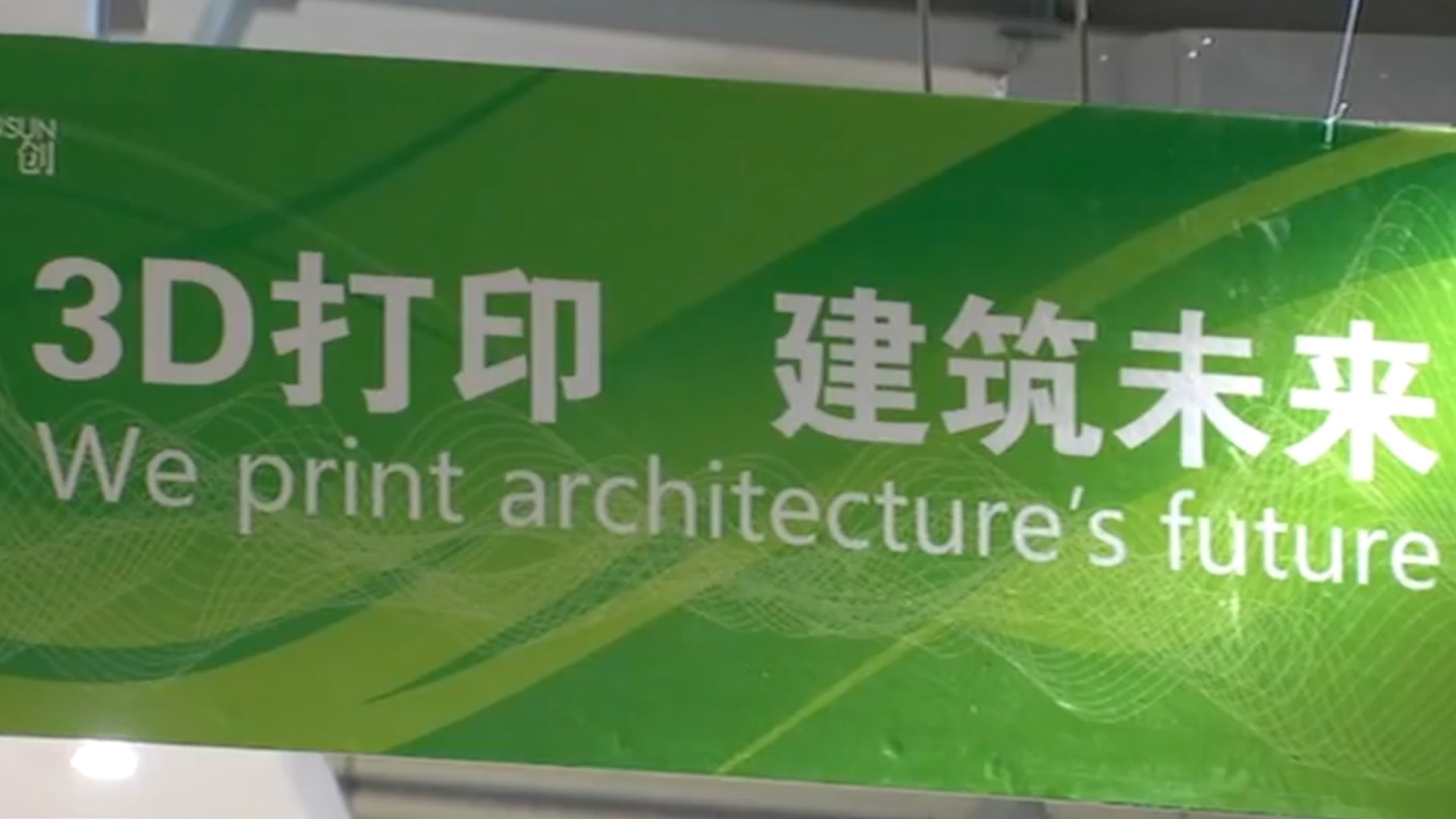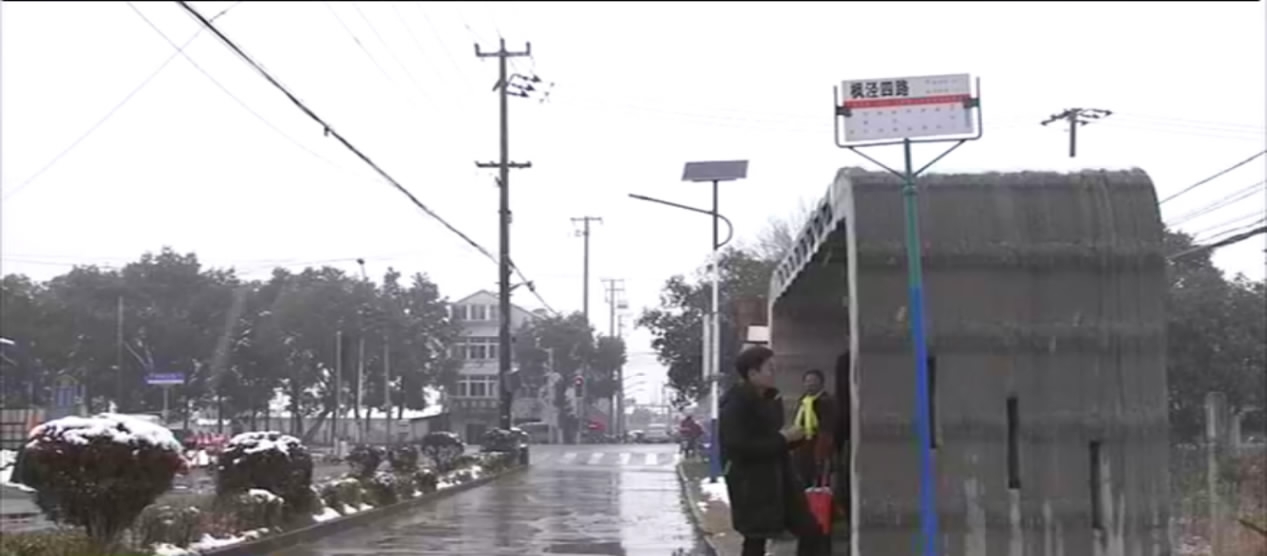
3D
21:44, 03-Feb-2018
3D-printed bus stops, houses come to east China
By Li Jianhua

3D printing is nothing new. It can be used to print all sorts of things – from some little gadgets to body parts. But now a company has printed bus stops in east China. What’s more, they have also printed out some houses.
From a distance, it seems to be nothing other than a boring gray wall. However, it's much more than that – it's a bus stop in a small town in east China’s Jiangsu Province.
“This bus stop is mainly made of construction waste. The processed waste was converted into the printing materials," said Ma Yihe, head of Yingchuang Building Technique. "Steel slag was also used in the making. Altogether, we used six tons of construction waste, about two tons of steel slag, and only one ton of cement to build this bus stop.”
Though it looks crude from the outside, it is very handy during bad weather.

A 3D-printed bus stop in Fengjing, Shanghai / CGTN Photo.
A 3D-printed bus stop in Fengjing, Shanghai / CGTN Photo.
“This bus stop helps handle the wind and rain from outside. We didn’t have this before, so we would get soaked when it rained, but not now. This is very helpful,” said a local resident.
But how a 3D printer creates such a gigantic building remains a mystery for many. Layer after layer, a bus stop – like the one in Jiangsu Province – can be finished within hours. The company does not stop with bus stops, and they are moving on to create “shared houses.”
Depending on the materials they work with, varying designs can be worked out – coffee tables, chairs, and various kinds of decorative walls. But most importantly, they are eco-friendly.

Printed materials by Yingchuang Building Technique based in the capital of east China’s Jiangsu Province / CGTN Photo.
Printed materials by Yingchuang Building Technique based in the capital of east China’s Jiangsu Province / CGTN Photo.
“Environmental protection-wise, we use processed mine tailing and construction waste as building materials. In the meantime, we also do research on the use of mine dumps, so as to integrate them into the printing materials,” said Sun Lidong, manager of Yingchuang Building Technique.
In addition, the company is also calling for rubbish classification, saying rubbish can be turned into treasure if put into the right place.

SITEMAP
Copyright © 2018 CGTN. Beijing ICP prepared NO.16065310-3
Copyright © 2018 CGTN. Beijing ICP prepared NO.16065310-3